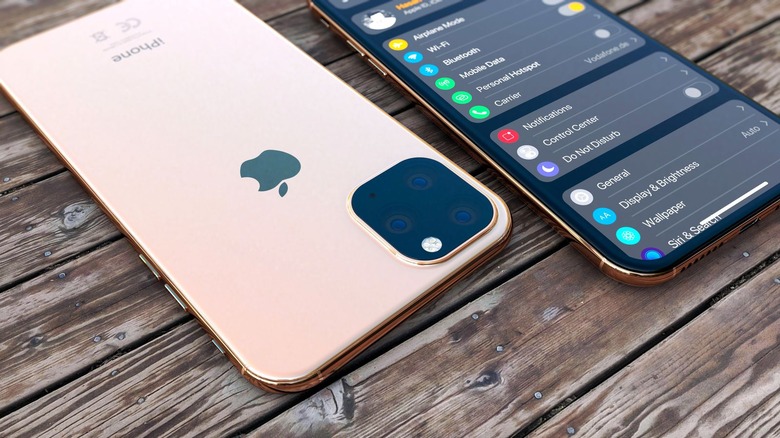Will The iPhone 11 Boost Sales? Bloomberg Weighs In
Apple is widely expected to launch three new iPhones this fall, the direct successors of the iPhone XS, iPhone XS Max, and iPhone XR. These new iPhone 11 handsets will be unveiled at some point in early September, with sales likely to begin by the end of the month, as is the case with every new iPhone barring any delays. Production plans are already underway, with Apple reportedly aiming to mass-produce some 75 million new iPhones in the second half of the year, on par with the estimates for the second half of 2018.
People familiar with the matter have shared with Bloomberg details about Apple's iPhone 11 plans. These figures seem to suggest that iPhone demand should be healthy in the second half of the year in spite of other factors that could impact the iPhone 11 launch, including the slowing high-end mobile market and the US-China trade war.
Asian suppliers are preparing to begin shipping parts for Apple's three upcoming iPhone 11 models, and Foxconn could ramp up production to 80 million new phones this year if needed. The manufacturer is already hiring extra workers for the season, and supposedly paying 10% more than last year.
Just because suppliers are ready to ramp up production doesn't mean Apple will sell that many new iPhones, the report notes, and Apple could correct quantities down the road. Apple no longer reports iPhone sales, so we won't know exactly how many iPhones Apple will sell in the remaining two quarters of 2019. However, Apple's upcoming guidance will signal what Apple expects to happen when it comes to iPhone sales.
Bloomberg also quotes numbers from analysts who have been following the industry closely:
Jeff Pu at GF Securities estimates that shipments of newly released iPhones will rise to 74 million in the second half, up about 7% from his estimate of 69 million last year, while TF International analyst Ming-Chi Kuo forecast that Apple would sell 75 million to 80 million new iPhones in the second half of 2018. This year's volumes may signal stabilization after a year of uncertainty, though that's a far cry from the double-digit growth numbers of years past.
The report adds that the new iPhone 11 models will look a lot like their predecessors when it comes to screen design. On the back, however, all three phones will have extra camera lenses: that's three for the premium iPhone 11 and 11 Max, and two for the more affordable iPhone 11R.
Bloomberg then reiterates what it learned from a report earlier this week without actually citing its source, saying that the extra camera will be an ultra-wide lens, "allowing the phone to automatically repair parts of an image that may be initially chopped out of a frame." The extra sensor will also enable a wider range zoom. All three phones will pack faster A13 chips designed by Apple but mass-produced by TSMC.
A radical iPhone redesign isn't expected until next year, with the 2020 iPhones to also expected get 5G support and new AR cameras.
